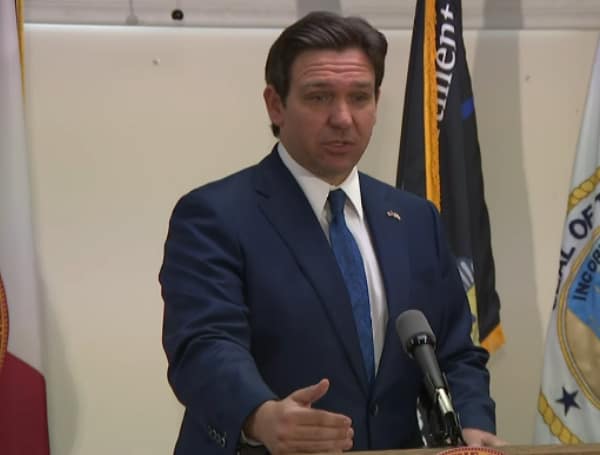Florida Governor Ron DeSantis signed legislation Monday to toughen penalties for anyone who gives law enforcement officials access to fentanyl and to raise awareness of what can be done to save the lives of those who are overdosing on opioids.
Additionally, Governor DeSantis announced that the Coordinated Opioid Response (CORE) network will now span 29 counties instead of only 12.
“Because of the Biden administration’s unwillingness to secure the southern border, law enforcement officers are encountering fentanyl at alarming rates,” said Governor Ron DeSantis. “I’m signing legislation today to keep officers safe on the job, and to further combat the opioid epidemic.”
Read: Florida AG Ashley Moody Warns Of Direct Deposit Tax Refund Scams
“Opioid addiction has been a scourge in the lives of too many Floridians and too many Americans around the country,” said State Surgeon General Dr. Joseph Ladapo. “Thanks to Governor DeSantis and the support of our legislators, we are continuing to take steps to address this human tragedy. CORE’s expansion will support and treat more Floridians and serve as a model for states around the country.”
Governor Ron DeSantis signed SB 718 and SB 66 into law.
SB 718 does the following:
- Creates a second-degree felony for any adult who, through unlawful possession of dangerous fentanyl or fentanyl products, recklessly exposes any first responder to such fentanyl and that results in overdose or serious bodily injury.
- Expands protections from prosecution for individuals who seek help in good faith due to the belief that they or someone they know is experiencing an overdose.
SB 66 does the following:
- Designates June 6th as Revive Awareness Day.
- Directs the Florida Department of Health to raise awareness of the dangers of opioid overdose and the safe use of opioid counteractants.
Governor DeSantis also announced that CORE has expanded from 12 counties to 17 additional counties in Florida. This includes Bay, Broward, Collier, Hernando, Hillsborough, Indian River, Lake, Lee, Leon, Miami-Dade, Monroe, Okaloosa, Orange, Polk, Sarasota, Seminole, and St. Lucie counties.
Read: Florida Gov. DeSantis Signs 7 Bills Including Parking, Skin Cancer Screening
While nationwide statistics show that only 18.8% of adults with an opioid addiction have received medication to treat the addiction in the past year, CORE far exceeded the national average with 48.9% of patients receiving medication-assisted treatment.
CORE providers have responded to nearly 18,000 emergency calls, resulting in a life saved by administering naloxone.
With the launch of CORE, Florida has also seen a reduction in the number of emergency medical service responses necessary for drug overdose. Recent state level data shows 607 fewer EMS responses to suspected overdoses—a 3% decrease since 2022.
From January to June in 2023, CORE counties Duval and Escambia saw a drop of 176 and 146 EMS calls, respectively, for suspected opioid overdose from the same period in 2022. Pinellas County, another CORE county, had 406 fewer emergency medical service responses during the same time frame. This was the largest reduction in emergency medical service responses to suspected overdoses across the 12 CORE counties.
Help support the Tampa Free Press by making any small donation by clicking here.
Android Users, Click To Download The Tampa Free Press App And Never Miss A Story. Follow Us On Facebook and Twitter. Sign up for our free newsletter.

